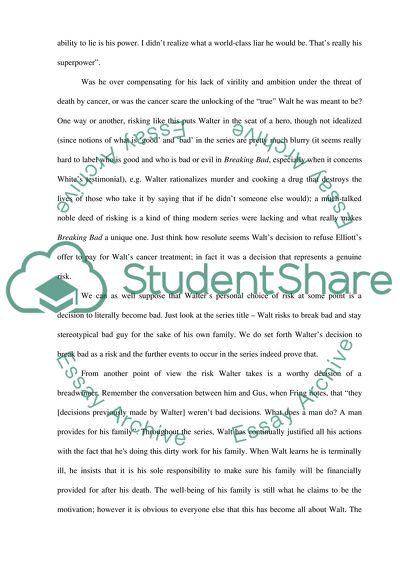Cite this document
(The Subject of Risk in Breaking Bad Essay Example | Topics and Well Written Essays - 2500 words, n.d.)
The Subject of Risk in Breaking Bad Essay Example | Topics and Well Written Essays - 2500 words. Retrieved from https://studentshare.org/visual-arts-film-studies/1856196-how-is-the-topic-of-risk-represented-in-tv-series-breaking-bad
The Subject of Risk in Breaking Bad Essay Example | Topics and Well Written Essays - 2500 words. Retrieved from https://studentshare.org/visual-arts-film-studies/1856196-how-is-the-topic-of-risk-represented-in-tv-series-breaking-bad
(The Subject of Risk in Breaking Bad Essay Example | Topics and Well Written Essays - 2500 Words)
The Subject of Risk in Breaking Bad Essay Example | Topics and Well Written Essays - 2500 Words. https://studentshare.org/visual-arts-film-studies/1856196-how-is-the-topic-of-risk-represented-in-tv-series-breaking-bad.
The Subject of Risk in Breaking Bad Essay Example | Topics and Well Written Essays - 2500 Words. https://studentshare.org/visual-arts-film-studies/1856196-how-is-the-topic-of-risk-represented-in-tv-series-breaking-bad.
“The Subject of Risk in Breaking Bad Essay Example | Topics and Well Written Essays - 2500 Words”, n.d. https://studentshare.org/visual-arts-film-studies/1856196-how-is-the-topic-of-risk-represented-in-tv-series-breaking-bad.


